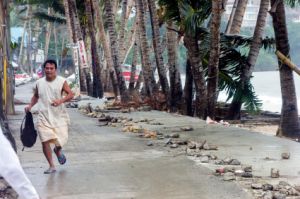
Trust your case to the honest & caring attorneys at Milla & Associates.
Temporary Protected Status Sought for the Philippines

In light of the Typhoon Haiyan disaster, efforts began last week to request that the U.S. Department of Homeland of Security (DHS) designate the Philippines for Temporary Protected Status (TPS).
The DHS Secretary has the authority to designate a foreign country for Temporary Protected Status because of conditions temporarily preventing the country’s nationals from returning safely or if the country cannot adequately handle the return of its nationals.
Temporary country conditions for a TPS designation include:
- Ongoing armed conflict
- Environmental disaster
- Epidemic
Once a country is designated for TPS, U.S. Citizenship and Immigration Services (USCIS) may grant TPS to its eligible nationals who are in the U.S. Some countries designated for TPS include Syria, El Salvador, Haiti, and Honduras.
During a period in which a country is designated for TPS, individuals granted TPS, or who are found prima facie eligible for TPS:
- Are not removable (deportable) from the U.S.;
- Can obtain an employment authorization document (EAD); and
- May be granted travel authorization.
As the name suggests, TPS is a temporary benefit that does not on its own lead to lawful permanent resident (LPR) status or give any other immigration status. However, TPS does not prevent an individual from:
- Applying for nonimmigrant status;
- Applying for adjustment of status to LPR based on an immigrant petition; or
- Applying for any other immigration benefit or protection for which she or he may be eligible.
Last week, Senator Charles Schumer (D-NY), New York Cardinal Timothy Dolan, and the American Immigration Lawyers Association (AILA) called upon DHS to extend TPS to the Philippines. According to recent reports, the death toll is at 4,200. The Philippine government disputes this figure and has reported 3,637 deaths as of this Saturday, up from 2,360. According to the Philippine disaster council, 1,186 are still missing.
The Philippine government says 9.8 million have been affected in 44 provinces, 539 municipalities, and 56 cities. Of those affected, 4.9 million are children; 1.5 million are children under the age of five who are at risk of Global Acute Malnutrition (GAM). According to U.N. estimates, 2.5 million people are in need of food assistance.
*If you have questions about TPS, humanitarian relief, or other immigration benefits, contact Milla Lawto schedule a consultation.
Hear From Our Happy Clients
-
“Best immigration Lawyer”
Robert is very knowledgeable, kind & approachable as well as his staff. From Sylvia to Daniel, they’re always very nice in answering all my concerns. I had no trouble with my USCIS interview because their team made sure that me & my husband were prepared. Robert was highly recommended to me by a Lawyer i know. I’m glad i took her advice and went to seek Roberts assistance regarding my marriage based green card. Got my approval the same day after the interview. I will be getting his assistance with all my immigration concerns including my childrens petition. I highly recommend Robert! He’s the best! 😊👍🏻- Jen -
“The Best Lawyer”
I would like to take this opportunity to thank Atty. Robert Milla, Ms. Sylvia and the rest of the staff of Milla Law firm. The team was of great help in processing my papers and documents, from the application of my Green Card until the application of my U.S. Citizenship. Not to mention how patient Mr. Robert Milla was when answering my questions and paying attention into knotting all the loose ends to make sure that everything goes well for me to achieve the outcome I was aiming for. I would definitely recommend Robert Milla Law Firm not only for his compassion and empathetic demeanor in relating to his clients but also because of his undeniable skills in handling cases in immigration. His assistants are also commendable for being so helpful and attentive. Until now I'm still overwhelmed that I immediately got the schedule of my Oath Taking Ceremony few days after my interview for the application of my U.S. Citizenship. I have no regrets in seeking legal help and advice from this office, and I will definitely hire their service for the petition of my family.- A.G. -
“Personal immigration lawyer”
Justin is my goto immigration lawyer. I came here as a student and Justin handled my H1B case couple of years ago. Although Trump administration was pushing back on many of the cases with RFEs, Justin gave a strongly worded response back and got me, my H1B. Last year, fortunately I met my now wife and after we got married, Justin handled our green card processing with ease and seamlessly. He has many contacts in the Immigration office, which made even more easier and hospitable for my interview. He was available throughout the interview and even helped on a couple difficult questions in between the interview. Throughout the processing, I found Justin highly organized and great understanding of the domain. He is very current with the news and changes to immigration laws and if he doesn't have answer then, you can expect an email to follow up with answers. I highly recommend Justin as a personal immigration lawyer.- Zak -
“Justin is a Top Class Immigration Attorney!”
Justin is a Top Class Immigration Attorney! Detail-oriented, answered all my questions, available via email and phone at all times. Just a phenomenal experience throughout the whole process.- Chris R. -
“Great service”
Great experiences. The attorney and the staff are friendly and helpful. Thanks for your services!- Hoang
